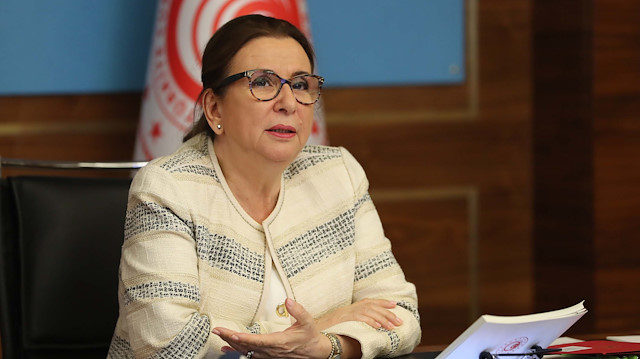
Trade minister invites Chinese firms to invest in Turkey's newly launched free-trade zones specializing in RD, high tech
Turkey on Friday said that it seeks to make its trade with China more sustainable and balanced by enabling high value-added exports.
Trade Minister Ruhsar Pekcan said she had discussed bilateral trade, the use of local currencies in trade, Beijing's Belt and Road Initiative, agricultural exports and the agenda of a joint economic commission between the two countries over the phone with her Chinese counterpart Zhong Shan.
The two ministers also addressed World Trade Organization reform, customs issues, cooperation in civil aviation, specialized free zones and the facilitation of commercial visas.
Pekcan said Turkey could become an ideal regional hub for China's global companies thanks to its quality human capital, customs union with the EU and flexible incentives system for investors.
Citing Turkey's free-trade zones specializing in research and development, high-tech and high value-added activities, Pekcan invited Chinese firms to invest in these zones as the country aimed to speed up international cooperation and become a global hub.
Pekcan said Ankara was also ready to cooperate in the Road and Belt Initiative.
The Belt and Road Initiative is an ambitious development program to connect Asia with Africa and Europe via land and maritime networks along six corridors with the aim of improving regional integration, increasing trade and stimulating economic growth.
"Some 28,243 tons of freighter was loaded through Baku-Tbilisi-Kars railway during the coronavirus pandemic, while it was 4,200 tons per month in January," she added.
The bilateral trade volume between Turkey and China surged to 21.6 billion in 2019, up from 1.1 billion in 2001, she added.
Pekcan stressed that China could purchase specific products such as motor vehicles, medical equipment, electrical machinery, and agricultural products for better quality and favorable conditions from Turkey.
"We're ready to cooperate with China in those fields," she added.
Hello, the comments you share on our site are a valuable resource for other users. Please respect other users and different opinions. Do not use rude, offensive, derogatory, or discriminatory language.
The floor is all yours.








